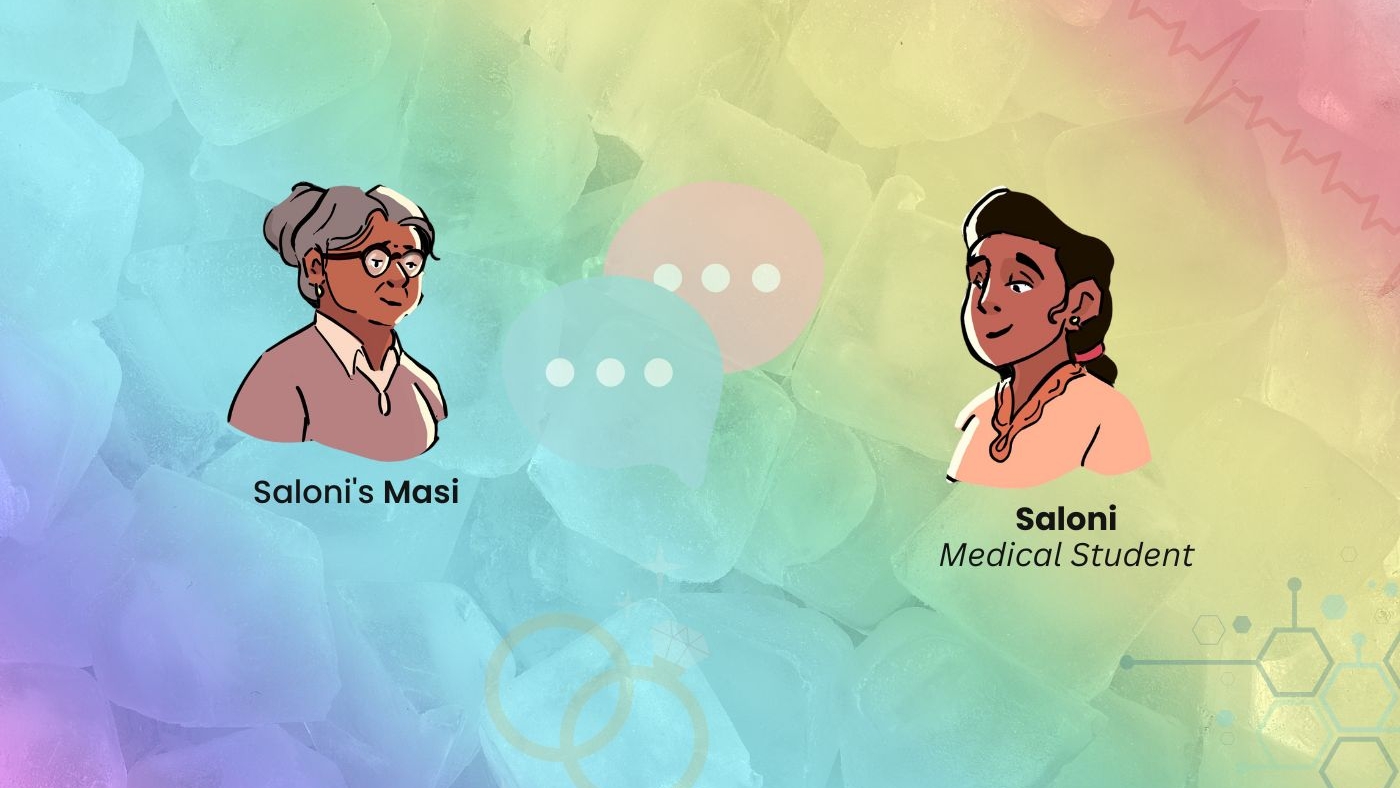Embark on a journey of self-discovery with Dr. Sejal Mehta, a distinguished child and adolescent psychiatrist. Through her insightful case studies, you’ll explore the challenges of emotional control and gain valuable techniques for effective self-regulation, improving mental health, and nurturing emotional intelligence.
Case Study: Saloni
Social Pressure
Aakash’s friends were in similar situations. Many of them were struggling with internal confusion and failed to express themselves to someone who could help, except Saloni.
Saloni was able to tell her parents that she is not interested in getting married until she finishes her medical studies. Her parents wanted her to get married first. “Study cannot be a girl’s main focus. You have to learn how to make a round roti.” She had heard this constantly and always wondered if the taste of non-round roti would be any different.
Raw Emotion
During her young years, Saloni was like a fireball. As the only daughter of wealthy parents, she always got what she wanted. She liked to win. Losing to anyone or anything was enough to get her upset. Her anger was expressed by screaming at the top of her lungs.
Her wealthy family still had deep-rooted traditions. Girls were not expected to perform well in school or attend college. All women of the family were homemakers. Saloni was expected to follow this tradition – get married and take care of the home. Saloni respected the role of home-makers in her family, but she did not want to be confined only to the kitchen. She explained her thoughts and feelings to her masi and asked for her guidance.
Self-Control
Saloni had a sensible relationship with her masi. She understood what Saloni was going through, and she was willing to give her time and support. Masi would accompany Saloni during the day and would teach her rules of action-reaction and acts-consequences. Masi would also teach Saloni some techniques of counting breaths to avoid becoming overwhelmed with anger. Saloni was a quick learner. After several months of practicing these skills, Saloni was able to think clearly, stay calm, and communicate effectively.
When she asked to take the NEET exams, her parents were not sure how to respond. They wanted their daughter to be happy, but they didn’t understand why she needed to study medicine at a college level. “Our daughter in a college environment?! We have more than enough money. Why do you want to study and work?”
Effective Communication
Saloni was prepared for this. She thought of her masi, took a deep breath, and continued to talk to her parents in a calm manner. It took several days of patient communication for Saloni to get her point across. The turning point was during a visit to the hospital. The female doctor there took very good care of Saloni’s sick grandfather. When her father thanked the female doctor for saving grandfather’s life, Saloni whispered in her father’s ear, “That will be me in the future that you will be thanking papa”. And there she was, in medical college now, fulfilling her dreams, and thanking her masi for supporting her.
Pause for Thought
- What was the cause of Saloni’s emotional instability?
- How did she learn to control her emotions?
- How did this benefit her life?

The Expert Opinion - Dr. Sejal Mehta
An expert in child & adolescent psychiatry, who has been practicing for more than 20 years in the USA. She serves as a content developer and guest speaker for IPDC.
Saloni was used to getting instant gratification merely because she was born in a wealthy family. She had learned to get what she wanted with expressions of anger and frustration. Despite being very wealthy, her family was rooted in traditions. At some level this brought balance into her life.
Saloni trusted her masi to guide her in the right direction. She chose the right person. Masi worked diligently in teaching Saloni how to recognize her state of mind and use techniques to overcome negative feelings. There are no shortcuts in learning the right ways of thinking and behaving. She took her time and learned. When the time came to make a choice about her education, she was patient with the process and spent time in getting her parents to be comfortable with her life choices.
Learning how to deal with emotions and disappointments in a positive manner benefited Saloni tremendously. When her higher education was contested, instead of getting angry and screaming, she was able to navigate these discussions skillfully. She did not react negatively with anger. She continued to discuss with her parents in a meaningful calm manner and was able to help them understand why being a doctor first is more important to her.
It is helpful for us to have a connection and open dialogue with mature people in our lives. There is more than one way to look at any situation and we need other perspectives to be able to conceptualize. If we rely on an emotionally immature person, we are bound to create more problems. Identifying emotionally mature individuals around us and collaborating with them is half the win. Being honest and open with them is crucial for them to guide us in the right direction.
IPDC Essentials
- Process emotions and disappointments positively to navigate difficult situations and handle conflicts in a constructive manner.
- Collaborate with emotionally mature individuals. Be honest and open with them to receive guidance in the right direction.
Reflection
- What causes you to become overwhelmed?
- How do you regulate your emotions?
- Do you have a mentor in your life? How has their support helped you become mature?

